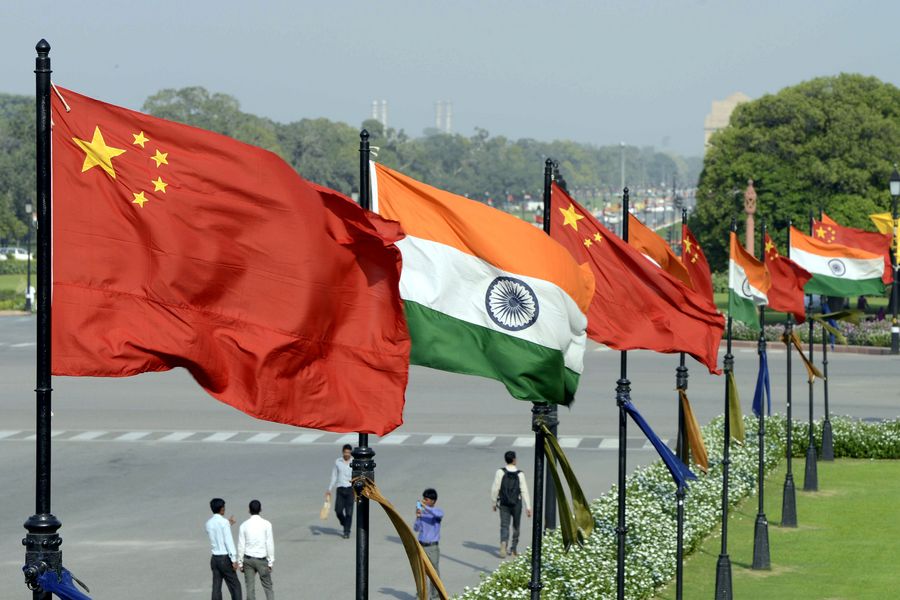China and India can be pillars of Asian Century

Indian and Chinese national flags flutter side by side at the Raisina hills in New Delhi, India, in this file photo. [Photo/Xinhua]
It is estimated that India overtook the United Kingdom to be the world's fifth-largest economy in March, after the United States, China, Japan and Germany.
China is happy to see India's development. The two countries are partners and opportunities to each other, rather than threats, and both China and India are committed to multilateralism and share a common interest in maintaining regional peace and security.
China therefore supports India playing a more constructive role in the international arena where it can add its voice to express the positions and appeals of developing countries, which is conducive to making the international order more equitable.
With the world once again facing division along Cold War lines, India is one of the few countries that can bridge the divide. On the one hand, India is a member of the US-led Quad and a participant in the "Indo-Pacific Economic Framework for Prosperity" initiated by the Joe Biden administration. On the other hand, India maintains friendly and cooperative relations with Russia. It is also a member of BRICS and the Shanghai Cooperation Organization, and maintains institutional communication and cooperation with China and other developing economies.
But for India to enjoy more diplomatic space it needs to maintain its strategic independence. India will not become a major power if it submits to being a piece on Washington's game board.
The pressure the US has been exerting on India for its neutrality on the Ukraine crisis speaks volumes of Washington's intentions to solicit New Delhi to participate in its games. To contain China is a major reason that the US is trying to curry favor with India. And New Delhi should realize that Washington will deem India a threat should it seek to extend its regional influence.
India should take full advantage of its role as a bridge between the two sides of the divide that is forming, and maintain its strategic independence. By doing so, it can set itself at a higher stage to better fulfill its international responsibility as a major player in the world.
China and India have a lot to do to improve the well-being of their people and their common interests far outweigh their differences. They should not let their border dispute, which is essentially a legacy problem of the colonial era, be an obstacle preventing them from advancing their partnership.
The two neighbors have no reasons not to work together to usher in the "Asian Century" — something the early generations of leaders of the two sides envisioned decades ago when they firmly upheld the nonalignment principle and Five Principles of Peaceful Coexistence with other developing countries.
To do so, India needs to maintain its long-term strategic independence and not let the US drive a wedge between it and China.